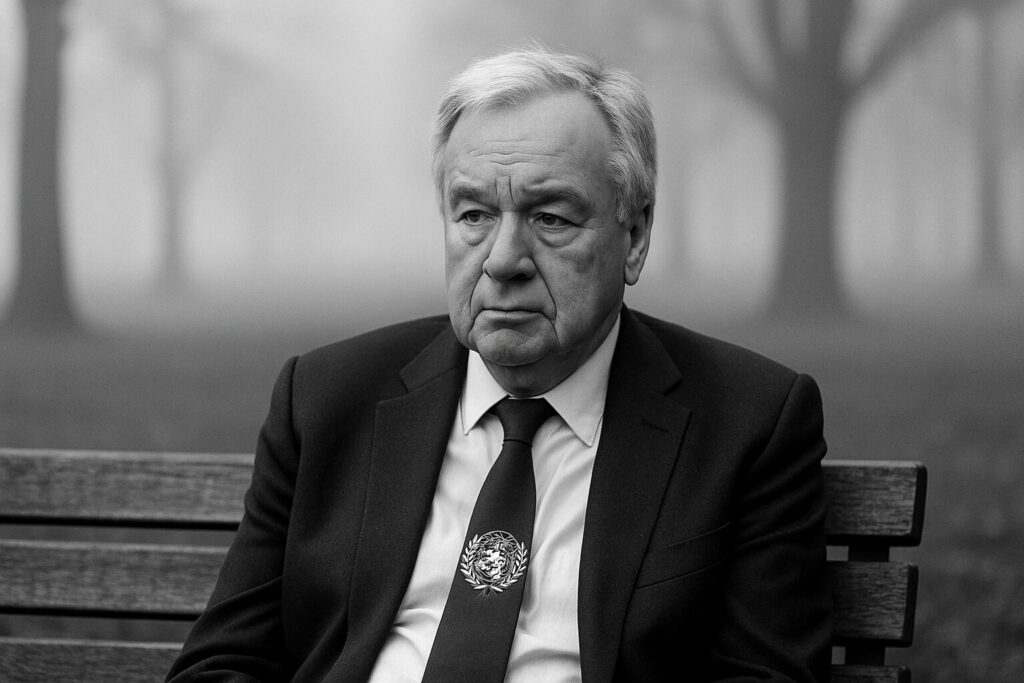Overview of Recent Diplomatic Developments
Shifting Alliances Worldwide
- In recent years, diplomatic landscapes have witnessed a profound transformation in alliances across the globe. Countries are realigning their strategic partnerships to adapt to evolving geopolitical challenges. The strategic shift in alliances is a strategic maneuver to strengthen their positions in the international arena. For example, the formation of new alliances in the Indo-Pacific region involving the United States, Japan, Australia, and India aims to counterbalance the growing influence of China.
Key Negotiation Breakthroughs
- Negotiation breakthroughs have played a pivotal role in reshaping international relations and fostering cooperation among nations. Diplomatic negotiations have led to significant agreements on various fronts, ranging from trade and security to environmental cooperation. For instance, breakthrough negotiations in the Middle East resulted in the Abraham Accords, which normalized relations between Israel and several Arab states. Such breakthroughs not only enhance regional stability but also set a precedent for resolving long-standing disputes through dialogue and diplomacy.
The Impact of Shifting Alliances on Global Politics
Economic Ramifications
In the realm of international relations, changes in alliances can have significant economic consequences for countries involved. As nations realign their partnerships, trade dynamics often shift accordingly. For instance, when countries form new economic alliances or trade blocs, it can open up opportunities for increased commerce, investment, and economic growth. On the flip side, sudden disruptions in established alliances may lead to trade conflicts, tariffs, and market uncertainties, impacting global economic stability. Therefore, it’s crucial for policymakers to consider the economic ramifications of shifting alliances to mitigate potential risks and leverage new opportunities for prosperity.
Security Implications
The security landscape undergoes profound transformations with the evolution of alliances in global politics. Changes in security alliances can alter the balance of power, influence military strategies, and shape defense cooperation among nations. For example, the realignment of security partnerships in a region can either enhance collective security measures or introduce new security challenges. Moreover, as countries forge new security alliances or defense agreements, it can impact geopolitical rivalries and regional stability. Understanding the security implications of shifting alliances is essential for policymakers to navigate emerging security threats, foster strategic deterrence, and promote peace and stability in an ever-changing global security environment.
Major Negotiation Breakthroughs and Their Significance
Peace Talks and Conflict Resolution
- In examining major negotiation breakthroughs, it’s crucial to emphasize the pivotal role of peace talks in resolving conflicts. Diplomatic efforts aimed at fostering peace can lead to significant breakthroughs that transform regional dynamics. For instance, the recent peace talks between longstanding adversaries have the potential to bring about stability in conflict-prone regions. These negotiations not only demonstrate a commitment to peaceful resolutions but also pave the way for sustainable peace agreements that benefit all parties involved.
- Understanding the significance of peace talks goes beyond mere rhetoric; it underscores the tangible outcomes that can result from diplomatic negotiations. Successful conflict resolution through peaceful dialogue sets a precedent for future negotiations and fosters a climate of cooperation and understanding. By delving into the intricacies of peace talks and their impact on diplomatic relations, policymakers can chart a path towards sustainable peacebuilding efforts that transcend borders and generations.
Trade Agreements and Economic Pacts
- Exploring trade agreements and economic pacts sheds light on the economic implications of negotiation breakthroughs. Trade agreements, forged through diplomatic negotiations, play a vital role in shaping global economic landscapes. These agreements dictate the terms of trade between nations, influencing market access, tariffs, and regulatory frameworks. Negotiation breakthroughs that result in trade agreements can boost economic growth, enhance competitiveness, and create new opportunities for businesses and consumers alike.
- The significance of trade agreements and economic pacts lies in their ability to strengthen economic ties between countries, fostering mutual prosperity and stability. By deepening economic cooperation through bilateral and multilateral agreements, nations can harness their comparative advantages and drive sustainable development. Policymakers must recognize the impact of these negotiation breakthroughs on trade dynamics and global economic stability to navigate the complexities of an increasingly interconnected world.
The Role of International Organizations in Diplomacy
The United Nations and Conflict Mediation
The United Nations plays a pivotal role in global diplomacy, particularly in conflict mediation. As a multilateral organization, it provides a platform for dialogue and negotiation among nations facing disputes. Through its peacekeeping missions and diplomatic efforts, the UN facilitates discussions aimed at resolving conflicts peacefully. It’s essential for countries to engage with the United Nations to seek impartial mediation and promote peacebuilding initiatives. Understanding the UN’s function in conflict resolution is crucial for fostering stability and preventing escalation into larger geopolitical crises.
Economic Blocs and Trade Negotiations
Economic blocs play a significant role in shaping diplomatic relationships through trade negotiations. These blocs, such as the European Union and ASEAN, create economic partnerships that influence diplomatic ties and international agreements. By fostering trade negotiations within these blocs, countries can strengthen their economic cooperation and establish common ground for diplomatic discussions. The impact of trade agreements on diplomatic relations is profound, as they not only enhance economic growth but also contribute to fostering stable political relations. Recognizing the interplay between economic blocs and diplomacy is essential for policymakers to leverage economic opportunities for enhancing diplomatic negotiations and fostering international cooperation.
Challenges in Modern Diplomacy

Cybersecurity and Information Warfare
In modern diplomacy, one of the key challenges is the growing concern over cybersecurity threats and information warfare. As nations become increasingly interconnected through digital channels, the risks of cyber attacks and the spread of disinformation have escalated. Diplomatic efforts are now required to address these issues to protect national interests and maintain stability in the international arena. Cyber attacks can disrupt critical infrastructure, undermine national security, and even influence public opinion, making it essential for diplomats to navigate this complex landscape adeptly. Understanding the nuances of cybersecurity and information warfare is crucial for diplomatic success in the digital age.
The Rise of Populism and Nationalism
Another significant challenge facing modern diplomacy is the resurgence of populism and nationalism in various parts of the world. Populist leaders often prioritize domestic interests over international cooperation, leading to tensions in diplomatic relations and a shift towards unilateral decision-making. Nationalist movements can fuel protectionism, trade disputes, and isolationist policies that hinder global diplomacy efforts aimed at collaboration and mutual understanding. Diplomats must navigate this trend carefully, balancing national interests with the need for multilateral cooperation to address global challenges effectively. Adapting to the rise of populism and nationalism requires diplomatic finesse and strategic communication to foster dialogue and consensus-building in an increasingly polarized geopolitical landscape.


 Paulina Evansonic is a visionary journalist and media entrepreneur who founded Whisper Wagon Wire, a leading platform renowned for its exclusive insights into top stories, world news, science, technology, and home trends. With a passion for uncovering the truth and a keen eye for detail, Paulina has dedicated her career to providing readers with in-depth, accurate, and engaging content.
Paulina's journey in the media industry began with a strong academic background in journalism and communication. Her early career was marked by her work as a reporter and editor for various prestigious publications, where she honed her skills and developed a reputation for her investigative prowess and commitment to quality reporting.
Driven by a desire to create a more holistic and accessible news source, Paulina launched Whisper Wagon Wire. Under her leadership, the platform has grown to become a trusted name in journalism, known for its balanced reporting and insightful analysis. Paulina's innovative approach has not only elevated the standards of news media but also inspired a new generation of journalists to pursue excellence in their work.
Through Whisper Wagon Wire, Paulina continues to influence the media landscape, ensuring that readers stay informed about the most important developments around the world. Her dedication to truth and transparency remains at the core of her mission, making her a respected and influential figure in the field of journalism.
Paulina Evansonic is a visionary journalist and media entrepreneur who founded Whisper Wagon Wire, a leading platform renowned for its exclusive insights into top stories, world news, science, technology, and home trends. With a passion for uncovering the truth and a keen eye for detail, Paulina has dedicated her career to providing readers with in-depth, accurate, and engaging content.
Paulina's journey in the media industry began with a strong academic background in journalism and communication. Her early career was marked by her work as a reporter and editor for various prestigious publications, where she honed her skills and developed a reputation for her investigative prowess and commitment to quality reporting.
Driven by a desire to create a more holistic and accessible news source, Paulina launched Whisper Wagon Wire. Under her leadership, the platform has grown to become a trusted name in journalism, known for its balanced reporting and insightful analysis. Paulina's innovative approach has not only elevated the standards of news media but also inspired a new generation of journalists to pursue excellence in their work.
Through Whisper Wagon Wire, Paulina continues to influence the media landscape, ensuring that readers stay informed about the most important developments around the world. Her dedication to truth and transparency remains at the core of her mission, making her a respected and influential figure in the field of journalism.
